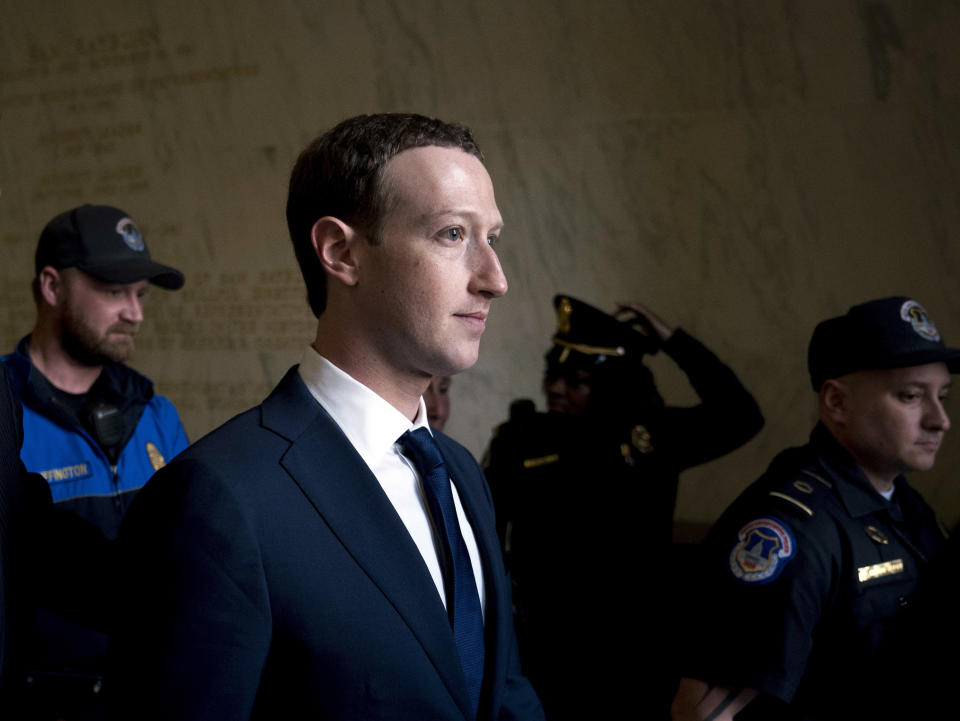Facebook, Google, and your data played a part in the AT&T-Time Warner decision
In a widely anticipated 172-page opinion approving the AT&T (T)-Time Warner (TWX) deal on Tuesday, a federal judge made note of America’s biggest tech giants and their access to your data.
Judge Richard Leon’s decision allowed the deal without any conditions, paving the way for a major content distributor, AT&T, to own a creator of widely sought-after content like HBO. In approving the deal, Leon mentioned that the so-called vertical merger — one that doesn’t involve direct competitors — would give Time Warner access to AT&T’s valuable customer data.
‘Digital advertising has been extremely profitable for the tech giants’
Until now, Leon noted, Time Warner’s Turner Broadcasting (which owns brands such as CNN and TBS) has been at a disadvantage when it comes to advertising compared to huge tech companies.

“The shift toward digital advertising has been extremely profitable for the tech giants — Google and Facebook, in particular,” Leon wrote, noting that Turner relies on TV advertising and saw its ad revenue decline by 2% in 2017 from the previous year.
Google, on the other hand, saw ad revenue nearly triple between 2012 and 2017, and Facebook’s ad revenue went from $4 billion to $40 billion in that time, largely due to their ability to use consumer data to target advertising. Facebook, of course, has faced a public outcry for its failure to safeguard that data, while Google has largely escaped the wrath of lawmakers so far.
“Through their access to and use of consumer data Google and Facebook are better able to discern the purchasing preferences and interests of individuals viewing particular content online,” he wrote. Later on, he added, “Best of all from an advertiser’s perspective, Google, Facebook, and other entities engaged in digital advertising have confirmatory data that demonstrates whether particular ads were effective.”
The merged AT&T-Time Warner could up its targeted advertising game once the deal is completed, when it plans to distribute Time Warner content through mobile devices. “AT&T will also, with their customers’ permission, use consumer data to develop targeted ads,” Leon noted, “thereby increasing the value of Time Warner’s ad inventory.”
‘ISPs can collect a huge amount of data’
While Judge Leon referenced Facebook and Google access to user information, Christopher Ali, an assistant professor of media studies at the University of Virginia, suggested that AT&T may be at even more of an advantage than tech giants when it comes to consumer data.
“ISPs can collect a huge amount of data, way more than Facebook or Google can. They know everything,” said Ali, who noted that internet service providers have recently been granted more leeway when it comes to collecting consumer data.
In October 2016, the FCC passed a rule that would have curbed how ISPs like AT&T and Yahoo parent company Verizon use and sell customer data. However, under the FCC’s new commissioner, Ajit Pai, the agency voted to prevent the privacy rule from going into effect. That ensures that ISPs can use and monetize data with very little regulatory scrutiny, according to Ali. He predicted that another internet service provider may be poised to snap up another big content creator like Disney.
“The judge basically said that media mergers are open for business,” Ali said.
In its complaint, the U.S. government contended that AT&T, which owns DirecTV, would gain the ability to force its rivals to pay “hundreds of millions of dollars more per year for Time Warner’s networks” if the deal went through. This leverage would cost American consumers money and leave them with fewer entertainment choices, according to the government.
Ultimately, of course, Judge Leon sided with AT&T-Time Warner, which contended that it would actually be in its best interest to distribute Time Warner content as broadly as possible because digital ads delivered online would “drive value.” Therefore, it wouldn’t be in AT&T’s interest to overcharge competitors for Time Warner content.
In siding with AT&T-Time Warner, Judge Leon said, “As the reader now knows, wide distribution is the sine qua non [essential condition] of the programming industry, driving both subscription and advertising revenue.”
The deal is expected to close on June 20, and the Justice Department is weighing its options — including a possible appeal.
Erin Fuchs is deputy managing editor at Yahoo Finance.


